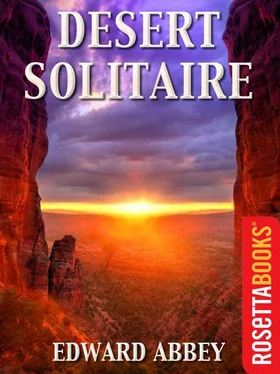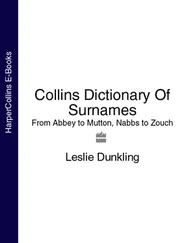Abbey, Edward - Desert Solitaire (Edward Abbey Series )
Здесь есть возможность читать онлайн «Abbey, Edward - Desert Solitaire (Edward Abbey Series )» — ознакомительный отрывок электронной книги совершенно бесплатно, а после прочтения отрывка купить полную версию. В некоторых случаях можно слушать аудио, скачать через торрент в формате fb2 и присутствует краткое содержание. Год выпуска: 2011, Издательство: RosettaBooks, Жанр: Старинная литература, на английском языке. Описание произведения, (предисловие) а так же отзывы посетителей доступны на портале библиотеки ЛибКат.
- Название:Desert Solitaire (Edward Abbey Series )
- Автор:
- Издательство:RosettaBooks
- Жанр:
- Год:2011
- ISBN:нет данных
- Рейтинг книги:4 / 5. Голосов: 1
-
Избранное:Добавить в избранное
- Отзывы:
-
Ваша оценка:
- 80
- 1
- 2
- 3
- 4
- 5
Desert Solitaire (Edward Abbey Series ): краткое содержание, описание и аннотация
Предлагаем к чтению аннотацию, описание, краткое содержание или предисловие (зависит от того, что написал сам автор книги «Desert Solitaire (Edward Abbey Series )»). Если вы не нашли необходимую информацию о книге — напишите в комментариях, мы постараемся отыскать её.
Desert Solitaire (Edward Abbey Series ) — читать онлайн ознакомительный отрывок
Ниже представлен текст книги, разбитый по страницам. Система сохранения места последней прочитанной страницы, позволяет с удобством читать онлайн бесплатно книгу «Desert Solitaire (Edward Abbey Series )», без необходимости каждый раз заново искать на чём Вы остановились. Поставьте закладку, и сможете в любой момент перейти на страницу, на которой закончили чтение.
Интервал:
Закладка:
Here we pause for a while to rest and to inspect the fragments of low-grade, blackish petrified wood scattered about the base of a butte. To the northeast we can see a little of The Maze, a vermiculate area of pink and white rock beyond and below the ledge we are now on, and on this side of it a number of standing monoliths—Candlestick Spire, Lizard Rock and others unnamed.
Close to the river now, down in the true desert again, the heat begins to come through; we peel off our shirts before going on. Thirteen miles more to the end of the road. We proceed, following the dim tracks through a barren region of slab and sand thinly populated with scattered junipers and the usual scrubby growth of prickly pear, yucca and the alive but lifeless-looking blackbrush. The trail leads up and down hills, in and out of washes and along the spines of ridges, requiring four-wheel drive most of the way.
After what seems like another hour we see ahead the welcome sight of cottonwoods, leaves of green and gold shimmering down in a draw. We take a side track toward them and discover the remains of an ancient corral, old firepits, and a dozen tiny rivulets of water issuing from a thicket of tamarisk and willow on the canyon wall. This should be Big Water Spring. Although we still have plenty of water in the Land Rover we are mighty glad to see it.
In the shade of the big trees, whose leaves tinkle musically, like gold foil, above our heads, we eat lunch and fill our bellies with the cool sweet water, and lie on our backs and sleep and dream. A few flies, the fluttering leaves, the trickle of water give a fine edge and scoring to the deep background of—silence? No—of stillness, peace.
I think of music, and of a musical analogy to what seems to me the unique spirit of desert places. Suppose for example that we can find a certain resemblance between the music of Bach and the sea; the music of Debussy and a forest glade; the music of Beethoven and (of course) great mountains; then who has written of the desert?
Mozart? Hardly the outdoor type, that fellow—much too elegant, symmetrical, formally perfect. Vivaldi, Corelli, Monteverdi? —cathedral interiors only—fluid architecture. Jazz? The best of jazz for all its virtues cannot escape the limitations of its origin: it is indoor music, city music, distilled from the melancholy nightclubs and the marijuana smoke of dim, sad, nighttime rooms: a joyless sound, for all its nervous energy.
In the desert I am reminded of something quite different—the bleak, thin-textured work of men like Berg, Schoenberg, Ernst Krenek, Webern and the American, Elliott Carter. Quite by accident, no doubt, although both Schoenberg and Krenek lived part of their lives in the Southwest, their music comes closer than any other I know to representing the apartness, the otherness, the strangeness of the desert. Like certain aspects of this music, the desert is also a-tonal, cruel, clear, inhuman, neither romantic nor classical, motionless and emotionless, at one and the same time—another paradox—both agonized and deeply still.
Like death? Perhaps. And perhaps that is why life nowhere appears so brave, so bright, so full of oracle and miracle as in the desert.
Waterman has another problem. As with Newcomb down in Glen Canyon—what is this thing with beards?—he doesn’t want to go back. Or says he doesn’t. Doesn’t want to go back to Aspen. Where the draft board waits for him, Robert Waterman. It seems that the U.S. Government—what country is that?—has got another war going somewhere, I forget exactly where, on another continent as usual, and they want Waterman to go over there and fight for them. For IT, I mean—when did a government ever consist of human beings? And Waterman doesn’t want to go, he’s afraid he might get killed.
As any true patriot would, I urge him to hide down here under the ledge. Even offer to bring him supplies at regular times, and the news, and anything else he might need. He is tempted—but then remembers his girl. There’s a girl back in Denver. I’ll bring her too, I tell him. He decides to think it over.
In the meantime we refill the water bag, get back in the Land Rover and drive on. Seven more miles rough as a cob around the crumbling base of Elaterite Butte, some hesitation and backtracking among alternate jeep trails, all of them dead ends, and we finally come out near sundown on the brink of things, nothing beyond but nothingness—a veil, blue with remoteness—and below the edge the northerly portion of The Maze.
We can see deep narrow canyons down in there branching out in all directions, and sandy floors with clumps of trees—oaks? cottonwoods? Dividing one canyon from the next are high thin partitions of nude sandstone, smoothly sculptured and elaborately serpentine, colored in horizontal bands of gray, buff, rose and maroon. The melted ice-cream effect again—Neapolitan ice cream. On top of one of the walls stand four gigantic monoliths, dark red, angular and square-cornered, capped with remnants of the same hard white rock on which we have brought the Land Rover to a stop. Below these monuments and beyond them the innumerable canyons extend into the base of Elaterite Mesa (which underlies Elaterite Butte) and into the south and southeast for as far as we can see. It is like a labyrinth indeed—a labyrinth with the roof removed.
Very interesting. But first things first. Food. We build a little juniper fire and cook our supper. High wind blowing now—drives the sparks from our fire over the rim, into the velvet abyss. We smoke good cheap cigars and watch the colors slowly change and fade upon the canyon walls, the four great monuments, the spires and buttes and mesas beyond.
What shall we name those four unnamed formations standing erect above this end of The Maze? From our vantage point they are the most striking landmarks in the middle ground of the scene before us. We discuss the matter. In a far-fetched way they resemble tombstones, or altars, or chimney stacks, or stone tablets set on end. The waning moon rises in the east, lagging far behind the vanished sun. Altars of the Moon? That sounds grand and dramatic—but then why not Tablets of the Sun, equally so? How about Tombs of Ishtar? Gilgamesh? Vishnu? Shiva the Destroyer?
Why call them anything at all? asks Waterman; why not let them alone? And to that suggestion I instantly agree; of course—why name them? Vanity, vanity, nothing but vanity: the itch for naming things is almost as bad as the itch for possessing things. Let them and leave them alone—they’ll survive for a few more thousand years, more or less, without any glorification from us.
But at once another disturbing thought comes to mind: if we don’t name them somebody else surely will. Then, says Waterman in effect, let the shame be on their heads. True, I agree, and yet—and yet Rilke said that things don’t truly exist until the poet gives them names. Who was Rilke? he asks. Rainer Maria Rilke, I explain, was a German poet who lived off countesses. I thought so, he says; that explains it. Yes, I agree once more, maybe it does; still—we might properly consider the question strictly on its merits. If any, says Waterman. It has some, I insist.
Through naming comes knowing; we grasp an object, mentally, by giving it a name—hension, prehension, apprehension. And thus through language create a whole world, corresponding to the other world out there. Or we trust that it corresponds. Or perhaps, like a German poet, we cease to care, becoming more concerned with the naming than with the things named; the former becomes more real than the latter. And so in the end the world is lost again. No, the world remains—those unique, particular, incorrigibly individual junipers and sandstone monoliths—and it is we who are lost. Again. Round and round, through the endless labyrinth of thought—the maze.
Читать дальшеИнтервал:
Закладка:
Похожие книги на «Desert Solitaire (Edward Abbey Series )»
Представляем Вашему вниманию похожие книги на «Desert Solitaire (Edward Abbey Series )» списком для выбора. Мы отобрали схожую по названию и смыслу литературу в надежде предоставить читателям больше вариантов отыскать новые, интересные, ещё непрочитанные произведения.
Обсуждение, отзывы о книге «Desert Solitaire (Edward Abbey Series )» и просто собственные мнения читателей. Оставьте ваши комментарии, напишите, что Вы думаете о произведении, его смысле или главных героях. Укажите что конкретно понравилось, а что нет, и почему Вы так считаете.












